5 Feminist Classics to (Re)read as a Mom, Wife and Writer
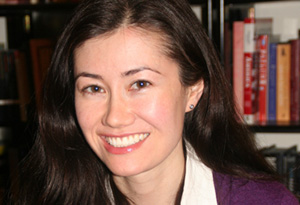
Stephanie Staal was an idealistic undergrad at Barnard when she first read the feminist classics in a woman's studies course. Back then, she found Betty Friedan's The Feminine Mystique "a mildly interesting relic from another era." Fast forward 10 years—she's now a wife and mother who's traded the stability of full-time work as a journalist for the flexibility of freelance—and things feel a little different. Now, rereading Friedan elicits a new reaction, ultimately leading her back to her alma mater to re-enroll in the same Feminism 101 class. What follows is Reading Women: How the Great Books of Feminism Changed My Life—a very personal examination of her experience as a wife, mother and woman, done alongside a new generation of young graduates ready to take on the world. Here are five novels that she loves.
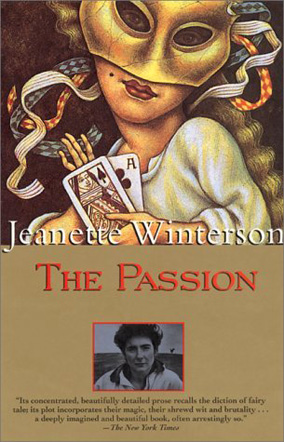 The Passion (1997)
The Passion (1997)By Jeanette Winterson
"A friend passed along this book to me the summer after I graduated from college. "You will love it," he said. And I did—and still do, every time I reread it. A magical fairy tale of love and war set during the Napoleonic Wars, the story is told in the alternating voices of Napoleon's cook Henri, who eventually makes his escape from military life, and Villanelle, the gender-bending, gambling daughter of a Venetian gondolier who falls in love with a married woman and loses her heart to her—literally. For a fairly slim book, Winterson delves deep into issues of sex, violence, identity, and of course, passion. Gorgeously written, evocative and provocative, this book always tops my list of must-read recommendations."
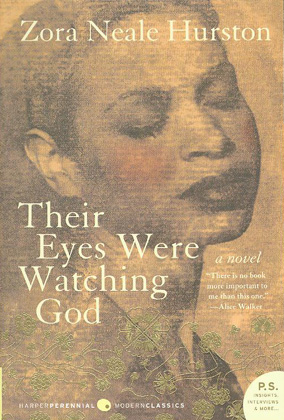
Their Eyes Were Watching God (1937)
By Zora Neale Hurston
"I was first introduced to Zora Neale Hurston, one of the major figures of the Harlem Renaissance, when I transferred to Barnard. A Barnard alumna, Hurston also majored in anthropology, studying with Franz Boas, Ruth Benedict, and fellow student Margaret Mead during the 1920s. After reading her groundbreaking nonfiction and ethnographic works—Mules and Men and Tell My Horse—I eagerly picked up this novel, which follows the life and loves of an African-American woman named Janie Crawford. I love this book, not only because it offers a poetic glimpse into a black woman's experience during a particular time and place (the narrative is written partly in dialect), but also because Hurston so masterfully reveals the universal tangle of emotions we experience in human relationships."
By Zora Neale Hurston
"I was first introduced to Zora Neale Hurston, one of the major figures of the Harlem Renaissance, when I transferred to Barnard. A Barnard alumna, Hurston also majored in anthropology, studying with Franz Boas, Ruth Benedict, and fellow student Margaret Mead during the 1920s. After reading her groundbreaking nonfiction and ethnographic works—Mules and Men and Tell My Horse—I eagerly picked up this novel, which follows the life and loves of an African-American woman named Janie Crawford. I love this book, not only because it offers a poetic glimpse into a black woman's experience during a particular time and place (the narrative is written partly in dialect), but also because Hurston so masterfully reveals the universal tangle of emotions we experience in human relationships."
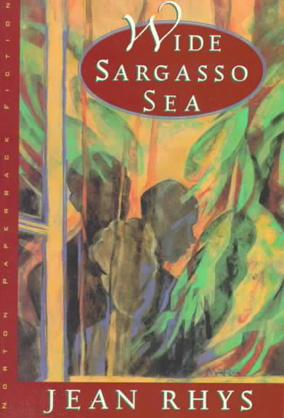
Wide Sargasso Sea (1966)
By Jean Rhys
"I was drawn to this novel as soon as I heard the premise. Rhys, inspired by the "madwoman in the attic" in Charlotte Brontë's Jane Eyre, sets out to imagine this woman, giving her voice and thought and desire of her own. The lunatic wife, Bertha, in Jane Eyre is, in Rhys's version, Antoinette Cosway, a white Creole heiress raised in Jamaica and forced by circumstance to enter an arranged marriage to an Englishman. The union is an unhappy one, with both husband and wife caught up in a fever of distrust and discontent. They leave the tropics for England, where Antoinette, already mentally unstable, descends into madness. Rhys writes in lush prose, shifting between Antoinette's and her husband's point of view, illustrating the power of a narrator to control reality. I found myself still haunted by this book long after I had finished the last page."
By Jean Rhys
"I was drawn to this novel as soon as I heard the premise. Rhys, inspired by the "madwoman in the attic" in Charlotte Brontë's Jane Eyre, sets out to imagine this woman, giving her voice and thought and desire of her own. The lunatic wife, Bertha, in Jane Eyre is, in Rhys's version, Antoinette Cosway, a white Creole heiress raised in Jamaica and forced by circumstance to enter an arranged marriage to an Englishman. The union is an unhappy one, with both husband and wife caught up in a fever of distrust and discontent. They leave the tropics for England, where Antoinette, already mentally unstable, descends into madness. Rhys writes in lush prose, shifting between Antoinette's and her husband's point of view, illustrating the power of a narrator to control reality. I found myself still haunted by this book long after I had finished the last page."
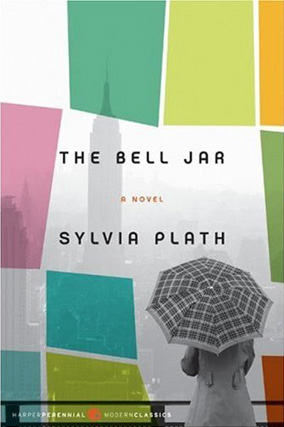
The Bell Jar (1963)
By Sylvia Plath
"A semi-autobiographical novel about a young college woman, Esther, who, following a prestigious summer internship at a woman's magazine in New York City, returns home and becomes increasingly depressed, then suicidal, eventually ending up in a mental hospital."
"I can picture myself in my peach-walled childhood bedroom, reading Plath's novel the summer after my junior year in college, and coming across one passage in particular in which Esther describes the choices before her as plump figs on a tree. And as she is standing there, trying to make up her mind about which one to choose, she watches them shrivel and fall off the branch one by one. Being around the same age as Esther, and feeling a similar anxiety about the future, I could totally relate. I think I carried that book around with me all summer."
By Sylvia Plath
"A semi-autobiographical novel about a young college woman, Esther, who, following a prestigious summer internship at a woman's magazine in New York City, returns home and becomes increasingly depressed, then suicidal, eventually ending up in a mental hospital."
"I can picture myself in my peach-walled childhood bedroom, reading Plath's novel the summer after my junior year in college, and coming across one passage in particular in which Esther describes the choices before her as plump figs on a tree. And as she is standing there, trying to make up her mind about which one to choose, she watches them shrivel and fall off the branch one by one. Being around the same age as Esther, and feeling a similar anxiety about the future, I could totally relate. I think I carried that book around with me all summer."
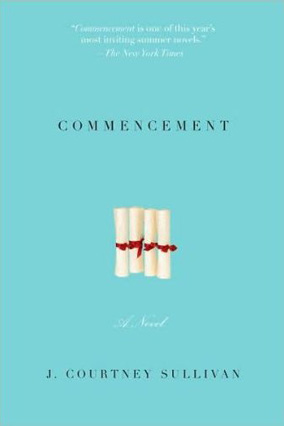
Commencement (2009)
By J. Courtney Sullivan
"I'm more than a few years older than the four women in Commencement, but I nevertheless found myself really connecting with the story. By following the lives of these different women, the novel takes a look at why we make the choices we do and how the consequences of those choices come to shape us. Meeting for the first time at Smith College in the late '90s, these four college friends form a tight bond, one that is later tested as they face various crossroads in their relationships and careers during their 20s—dead-end jobs, parental disapproval, dealing with romantic partners, weddings, babies, etc. Reading this book transported me straight back to that period in my life, reminding me of the importance of female friendship, camaraderie, and support."
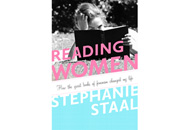 Reading Women
Reading Women
Stephanie Staal's Reading Women: How the Great Books of Feminism Changed My Life is about juggling the challenges of being a wife, mother and professional, finding your identity—and finding time to read.
Keep Reading:
31 favorite women writers
Think you know "chick lit"? Take this quiz!
By J. Courtney Sullivan
"I'm more than a few years older than the four women in Commencement, but I nevertheless found myself really connecting with the story. By following the lives of these different women, the novel takes a look at why we make the choices we do and how the consequences of those choices come to shape us. Meeting for the first time at Smith College in the late '90s, these four college friends form a tight bond, one that is later tested as they face various crossroads in their relationships and careers during their 20s—dead-end jobs, parental disapproval, dealing with romantic partners, weddings, babies, etc. Reading this book transported me straight back to that period in my life, reminding me of the importance of female friendship, camaraderie, and support."
 Reading Women
Reading WomenStephanie Staal's Reading Women: How the Great Books of Feminism Changed My Life is about juggling the challenges of being a wife, mother and professional, finding your identity—and finding time to read.
Keep Reading:
31 favorite women writers
Think you know "chick lit"? Take this quiz!
From the book Reading Women by Stephanie Staal. Reprinted by arrangement with PublicAffairs (www.publicaffairsbooks.com), a member of the Perseus Books Group. Copyright © 2011.



